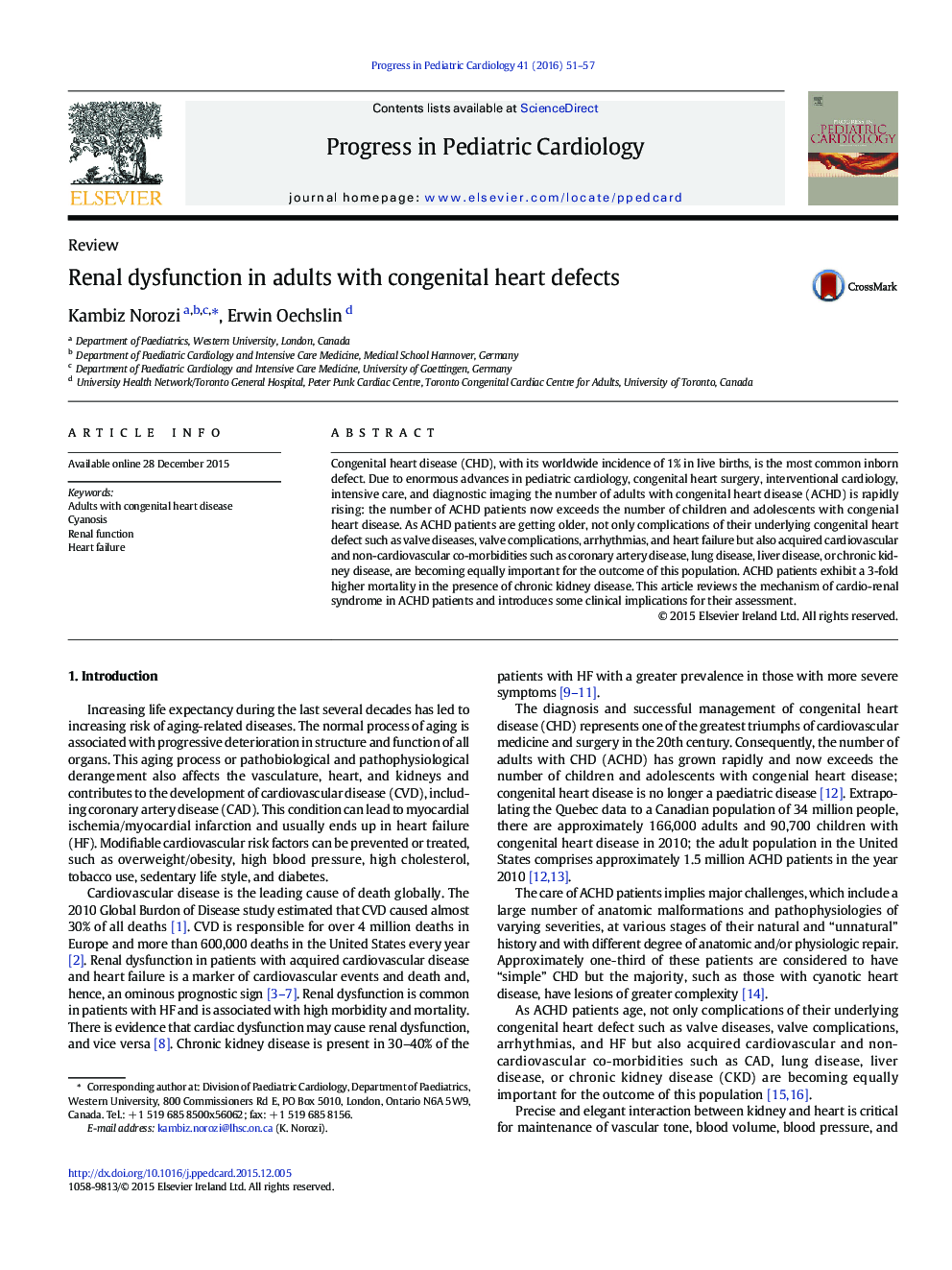| Article ID | Journal | Published Year | Pages | File Type |
|---|---|---|---|---|
| 3007274 | Progress in Pediatric Cardiology | 2016 | 7 Pages |
Congenital heart disease (CHD), with its worldwide incidence of 1% in live births, is the most common inborn defect. Due to enormous advances in pediatric cardiology, congenital heart surgery, interventional cardiology, intensive care, and diagnostic imaging the number of adults with congenital heart disease (ACHD) is rapidly rising: the number of ACHD patients now exceeds the number of children and adolescents with congenial heart disease. As ACHD patients are getting older, not only complications of their underlying congenital heart defect such as valve diseases, valve complications, arrhythmias, and heart failure but also acquired cardiovascular and non-cardiovascular co-morbidities such as coronary artery disease, lung disease, liver disease, or chronic kidney disease, are becoming equally important for the outcome of this population. ACHD patients exhibit a 3-fold higher mortality in the presence of chronic kidney disease. This article reviews the mechanism of cardio-renal syndrome in ACHD patients and introduces some clinical implications for their assessment.
